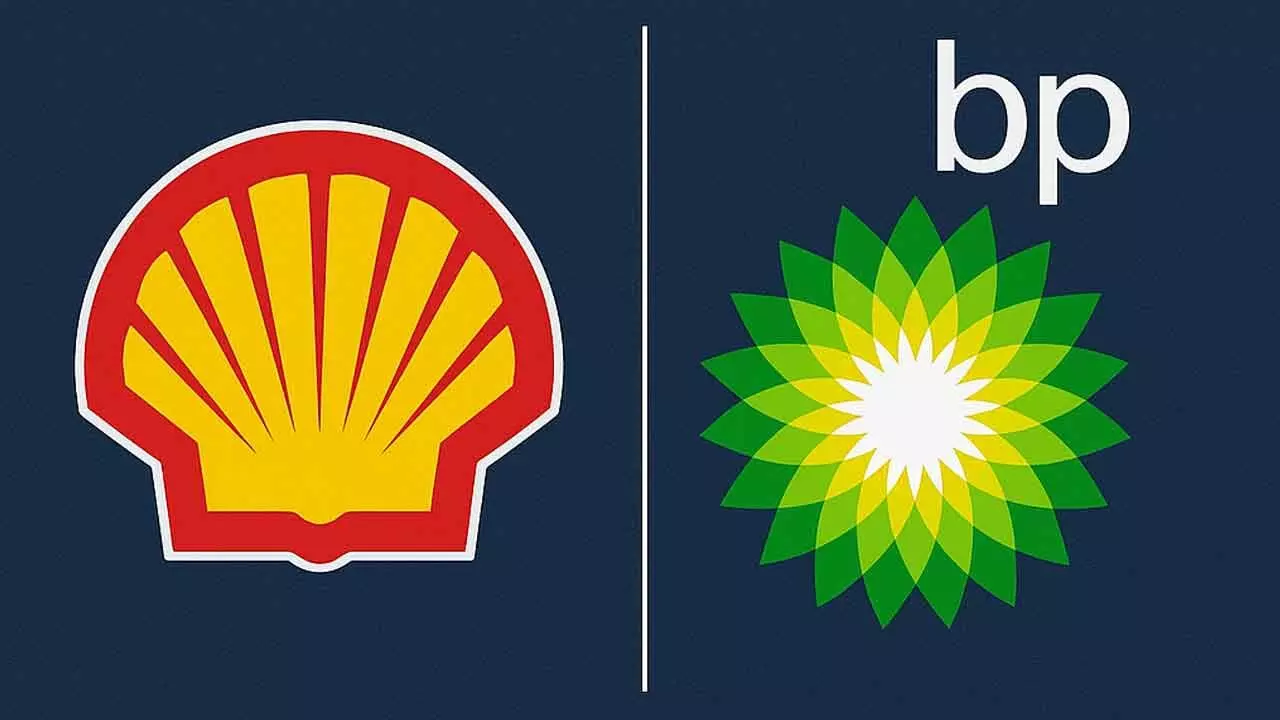Oil Shockwaves: Is a BP-Shell Megamerger on the Horizon?
Rumors of a colossal merger between oil giants BP and Shell sent ripples through the market. While Shell denies talks, we delve into the valuations, market dynamics, and what a tie-up could mean for the global energy landscape.
Oil Shockwaves: Is a BP-Shell Megamerger on the Horizon?

The global oil and gas industry was abuzz this week with whispers of a potential seismic shift: a colossal merger between British energy titans BP and Shell. On Wednesday, the Wall Street Journal ignited speculation, reporting that Shell was in early discussions to acquire its rival, BP. While Shell has swiftly moved to quell these rumors, the prospect of such a deal has sent shockwaves through the market, prompting a closer look at what would undoubtedly be one of the largest mergers in the history of the energy sector.
The speculation isn't entirely unfounded. BP's shares have faced a challenging year, plummeting by 23% and significantly underperforming the FTSE 100 Index, which saw a healthy 5.3% gain over the same period. In stark contrast, Shell's shares have enjoyed a robust rally, climbing over 8%, as reported by Reuters. This diverging performance naturally fuels speculation about potential consolidation, especially given BP's long-standing position as a subject of takeover talks due to its perceived undervaluation.
However, Shell has been quick to douse the flames of merger talk. "No talks are taking place," a Shell spokesperson firmly stated. "As we have said many times before, we are sharply focused on capturing the value in Shell through continuing to focus on performance, discipline and simplification." This latest denial echoes recent assertions by Shell CEO Wael Sawan, who has repeatedly emphasized that the company maintains a very high bar for large acquisitions, often viewing share buybacks as a more prudent allocation of capital than a potential bid for BP.
Valuation and the Road Ahead
Despite BP's stock underperformance, a deeper analysis of its financial disclosures suggests that the company might not be as "cheap" as its market valuation initially implies. As of Wednesday, BP was valued at nearly $80 billion, carrying a net debt of $27 billion. Shell, on the other hand, boasts a significantly larger market capitalization, standing at more than $208 billion.
On the trading floor, BP's American depository shares saw a modest gain of 1.5% to reach $30.40, while Shell's shares edged down 0.7% to $69.70 amidst the swirling rumors.
Should Shell ever decide to pursue such a monumental acquisition, it would mark a rare and audacious move by an oil major to swallow a rival of this scale. Such a deal would undoubtedly face intense scrutiny from regulatory bodies, given the potential for significant market concentration. The energy industry hasn't witnessed a merger of this magnitude since preliminary talks between Exxon and Chevron during the COVID-19 pandemic, a combination that would have reshaped the entire global energy landscape. A Shell-BP tie-up would undoubtedly create an undeniable powerhouse, significantly enhancing its competitive standing against US oil giants like ExxonMobil and Chevron, and France's TotalEnergies.
FAQs
Q1: Which are some of the major oil companies globally?
A1: Prominent global oil companies include British giants Shell and BP, US majors ExxonMobil and Chevron, and France's TotalEnergies.
Q2: What were the recent share prices for BP and Shell?
A2: Recently, BP's American depository shares were up 1.5% at $30.40, and Shell's shares were down 0.7% at $69.70.

